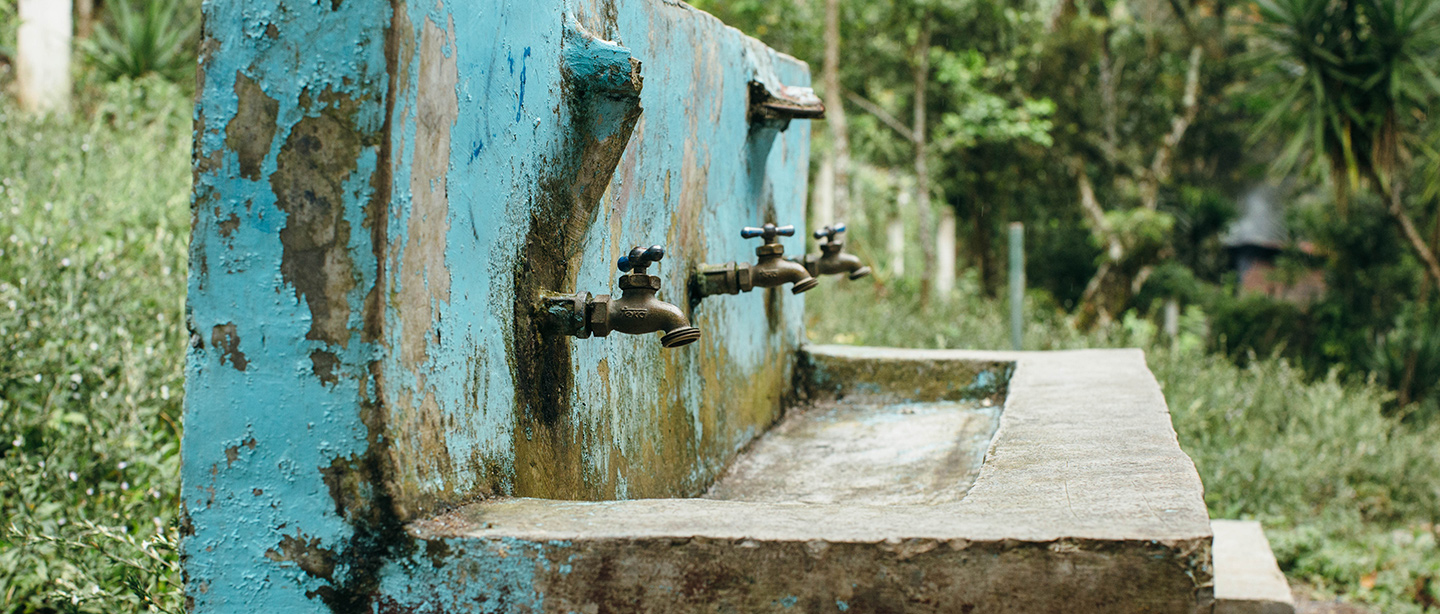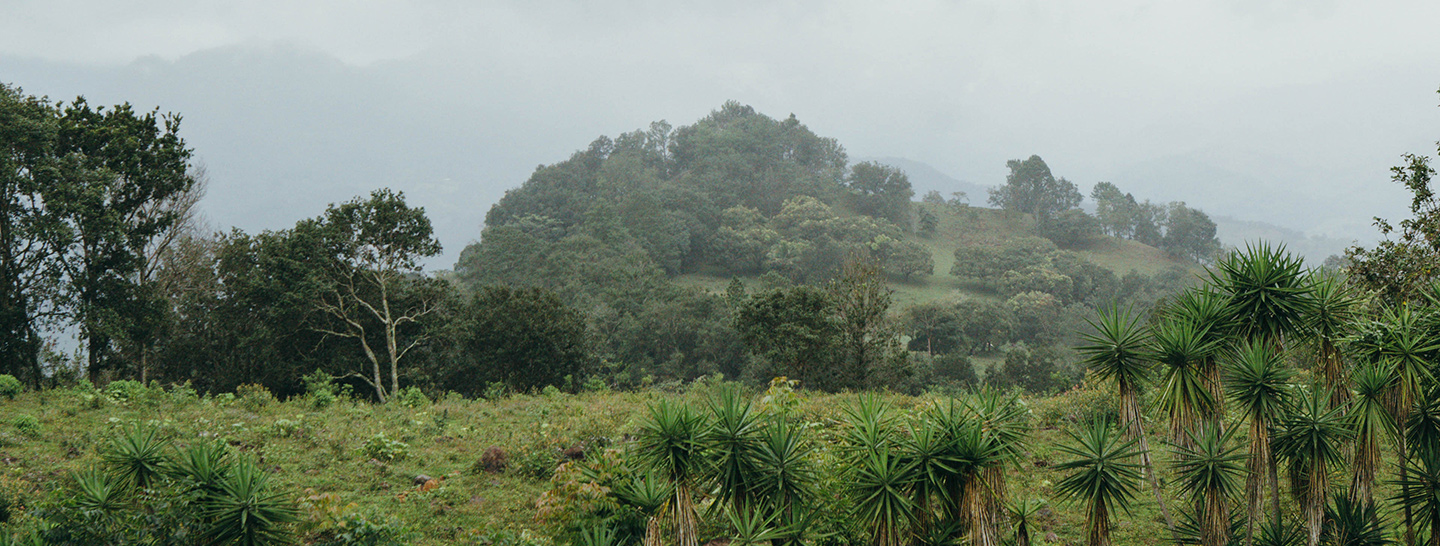Permanent Solutions Require Innovative Initiatives
Integrated Community and School Programming
Water For People is rethinking the way conventional school programming is implemented. Traditionally, school programs have not involved the surrounding communities because schools are frequently the weakest part of communities: teachers are often underpaid and overloaded with multiple activities; school administrations are weak and have a limited or nonexistent funding base; and teachers who have received hygiene education training often leave for better schools. As a result, programs focused on schools tend to have the greatest sustainability challenges.
Water For People–Honduras treats schools as part of the wider community. It engages local leaders and organizations to build hand-washing stations and toilets in schools.
Each school intervention is combined with solutions and education in the community to help ensure that good hygiene practices learned in schools are reinforced at home. Responsibility for project implementation, finance, and maintenance of the school water and sanitation system is placed with the community and local government, thus taking the burden off the often overwhelmed and underfunded schools. In areas where water and sanitation infrastructure already exists, Water For People–Honduras works with the community to reinforce health and hygiene education messages and system management.
In some cases, rather than directly managing the construction of water supply, toilets, and hand-washing stations for schools, Water For People–Honduras directs the funds (usually supplemented by municipal government funds) to parent-teacher associations to manage. Water For People–Honduras also provides training and mentoring on topics such as the basics of financial management and project administration. These skills translate into tools that community members can continue to use as they further develop their communities.
Local Water Resource Management
Water For People–Honduras is a champion of strong Local Water Resource Management (LWRM). Before working in a community, Water For People–Honduras delineates the watershed basin to better understand the available water resources and the impact that usage will have on surrounding communities. Great emphasis is placed on sanitation and ensuring that communities with households above the water source have proper latrines to avoid contamination of the water. Significant effort is also made to protect the community water source and to educate community members about the individual impact they have on water quality in their community.
Water For People–Honduras is also working with municipalities and communities to achieve legally protected status for land around water sources and water recharge areas. The greatest progress in this area has been achieved in El Negrito, where the municipal government has formed the Commission to Purchase Micro-watersheds (COMIC), which raises funds to purchase land surrounding drinking water sources in the district and engages in advocacy efforts.
Water For People–Honduras promotes water conservation and equitable payment for use by requiring all water systems they construct or rehabilitate to include household-level micrometers. This allows the water committees and community members to monitor water usage and establish usage-based fee structure to maintain the system.
Building Local Capacity to Manage Water and Sanitation Systems
Water For People–Honduras has been steadily building the capacity of the municipalities and communities so that they will be able to sustain water and sanitation services long term. In each of the three Everyone Forever districts, Water For People–Honduras trains and supports community water and sanitation committees on operation, maintenance, and administration of water and sanitation services. Additionally, Water For People-Honduras has supported the formation and strengthening of Municipal Associations of Water and Sanitation Committees, which provide technical support and training to water committees, and operate chlorine banks in different sectors of each district, making the chlorine needed to chlorinate water systems to ensure water quality more available in rural areas.
Since 2014, Water For People-Honduras has also been building the capacity of the Municipal Associations of Water and Sanitation Committees to help address sanitation issues within communities. Water For People—Honduras staff trained members of the Associations and helped them gain the legal status to function as cooperatives and offer loans to the water and sanitation committees of communities within the districts where families want to build or rehabilitate household toilets. The community water and sanitation committee makes loans directly to families, who pay back the loan along with their monthly water tariff. Once families repay their loans, the community water and sanitation committee repays the Association, who then is able to loan the funds to a different community who wishes to improve is sanitation conditions.
Water For People-Honduras has also supported the formation of civil society structures prescribed by national water law, the Municipal Water and Sanitation Commission (COMAS) and the Local Supervisory and Control Unit (USCL), in each of the three target districts. These structures provide planning and investment guidance to the municipal government, additional technical support to water and sanitation committees, and enforce compliance with national sector regulations.
Current Programming
In 2016, Water For People–Honduras continues to facilitate water and sanitation programming to build toward full coverage in the municipalities of San Antonio de Cortés and El Negrito. A highlight of this programming will be continued work on the enormous 17 Communities project in San Antonio, which will bring drinking water to over 4,000 people in 17 communities when completed, raising water coverage in the district by over 40%. The massive system is projected to be completed in May, 2016. In all three districts, Water For People-Honduras will continue promote increased water quality through training community water committees on chlorination. Financial sustainability of systems will also be an area of focus, though working with water committees to raise tariffs to levels sufficient to cover routine operation and maintenance costs as well as a percentage of major repair and replacement costs using tools such as AtWhatCost and an asset registry developed to catalogue the real costs of system components.
In Chinda, Water For People–Honduras is focusing on building the local capacity to maintain full water coverage Forever. This will include building the capacity of municipal government, community water and sanitation committees, the Municipal Water and Sanitation Commission, and the Municipal Association of Water and Sanitation committees. Water For People-Honduras will also build a relationship with the Association of Municipalities of CRA, to create local institutional capacity to provide ongoing technical support to Chinda, so that Water For People-Honduras can switch to a less direct support role and eventually exit (fulfilling our goal of creating a district that no longer needs our direct support to maintain Everyone). CRA is also a possible strategic partner to replicate the Everyone Forever approach in new districts within the department of Santa Bárbara.
Water For People-Honduras will also support scaling the Everyone Forever through participation in the Para Todos Por Siempre movement, which in in 2016 will focus effort on increasing coordination with national government sector institutions, the Association of Municipalities of Honduras (AMHON), and local associations of municipalities. Water For People-Honduras will provide technical assistance to member of the PTPS movement, associations of municipalities, and other sector institutions on the use of At What Cost as a tool to promote improving tariff sustainability.





